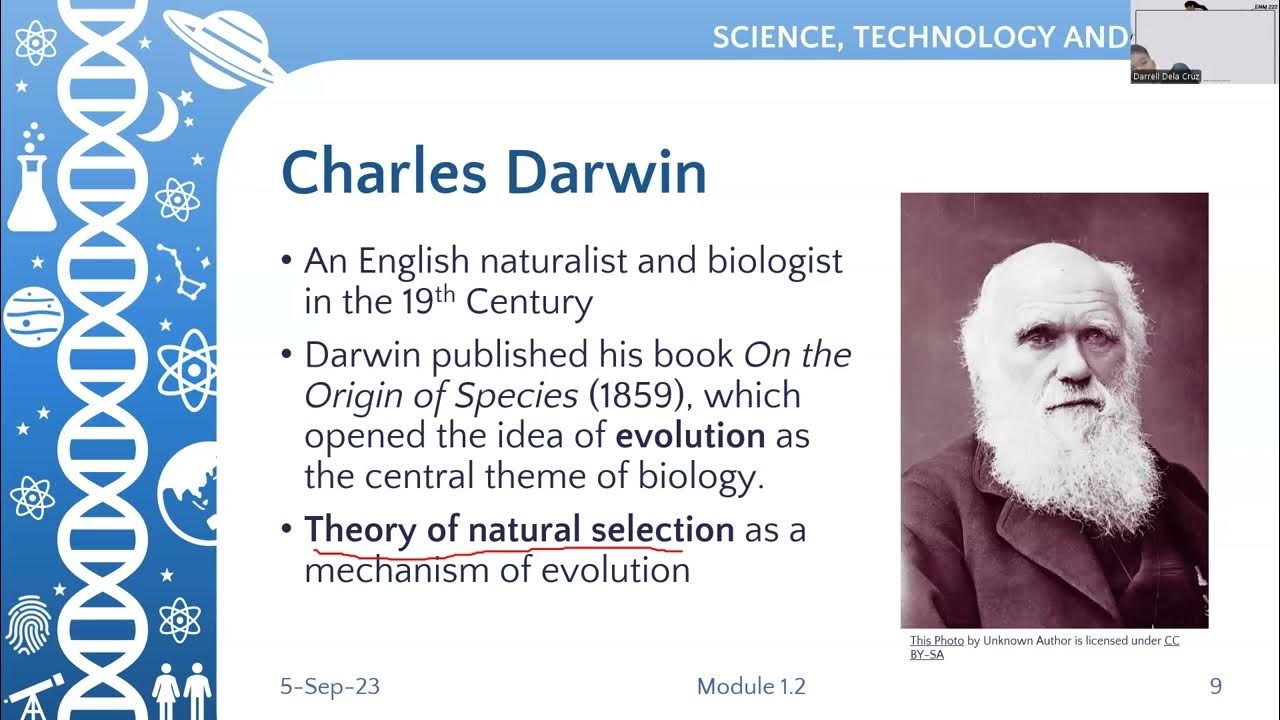STS Intellectual Revolutions and Society
Summary
TLDRThis lecture explores key intellectual revolutions that transformed our understanding of science and society. It highlights the shift from ancient geocentrism to Copernicus’ heliocentric model, which set the foundation for modern astronomy. It also delves into Charles Darwin's theory of evolution by natural selection, challenging traditional religious beliefs, and Sigmund Freud's revolutionary work in psychoanalysis, which changed perceptions of psychology. The lecture connects these theories to the Enlightenment and presents how scientific advancements shaped our current worldview.
Takeaways
- 😀 Ancient beliefs in astronomy placed the Earth at the center of the universe (geocentrism), a view that lasted for over 1400 years.
- 😀 The heliocentric theory, proposed by Copernicus, challenged the geocentric model by positioning the Sun at the center of the solar system.
- 😀 Copernicus' model revolutionized astronomy by suggesting that Earth rotates on its own axis and orbits around the Sun.
- 😀 Charles Darwin's theory of evolution by natural selection conflicted with the traditional belief of divine creation of species.
- 😀 Darwin's theory proposed that organisms with advantageous traits are more likely to survive and reproduce, passing those traits on to the next generation.
- 😀 The development of psychology as a science was shaped by Sigmund Freud's psychoanalysis, which explained human behavior as influenced by both conscious and unconscious factors.
- 😀 Freud's psychoanalysis divided the human mind into the id, ego, and super ego, with constant conflict between these components.
- 😀 Maslow's hierarchy of needs outlines five stages, from physiological needs to self-actualization, with each stage building upon the previous one.
- 😀 Maslow's self-actualization refers to the fulfillment of one's potential, which looks different for everyone, whether through artistic, creative, or altruistic endeavors.
- 😀 The intellectual revolutions in science, such as those in astronomy, evolution, and psychology, have dramatically altered human understanding of the universe and ourselves.
Q & A
What was the widely accepted belief about the solar system before the 16th century?
-Before the 16th century, the widely accepted belief about the solar system was the geocentric model, which stated that the Earth was the center of the universe, and all celestial bodies, including the sun, moved around it.
What is the heliocentric model, and who introduced it?
-The heliocentric model is the concept that the Sun is at the center of the solar system, with the Earth and other planets orbiting around it. It was introduced by the Polish astronomer Nicolaus Copernicus in the 16th century.
Why was Copernicus' heliocentric model controversial?
-Copernicus' heliocentric model was controversial because it challenged the long-standing geocentric model, which had been accepted for over 1400 years. It also contradicted religious beliefs that the Earth was the center of the universe.
What were the key ideas behind Charles Darwin's theory of evolution?
-Charles Darwin's theory of evolution by natural selection stated that individuals within a species show variation, those best suited to the environment are more likely to survive and reproduce, and the traits that help them survive are passed on to future generations.
Why did Charles Darwin hesitate to publish his theory of evolution?
-Darwin hesitated to publish his theory of evolution because it contradicted the widely accepted religious view that God created all life forms in a single day, which would have been controversial during his time.
What is the significance of Freud's psychoanalysis theory in understanding human behavior?
-Freud's psychoanalysis theory revolutionized the understanding of human behavior by emphasizing the role of unconscious factors in influencing emotions and actions, and proposing that personality results from the conflict between the id, ego, and superego.
What are Maslow's five stages in his hierarchy of human needs?
-Maslow's hierarchy of human needs includes five stages: 1) Physiological needs (basic physical needs), 2) Safety needs (security and safety), 3) Love and belonging (relationships and acceptance), 4) Esteem needs (self-confidence and recognition), and 5) Self-actualization (achieving one's full potential).
How did Freud define the id, ego, and superego?
-Freud defined the id as the unconscious part of the mind driven by pleasure and basic instincts, the ego as the conscious rational self that decides on actions, and the superego as the part of the mind that acts as a moral conscience, guiding what should be done.
How did Copernicus' heliocentric model differ from Ptolemy's geocentric model?
-Copernicus' heliocentric model placed the Sun at the center of the universe, with planets, including Earth, orbiting it, whereas Ptolemy's geocentric model had Earth at the center, with all celestial bodies moving around it.
How did Darwin's theory of natural selection challenge traditional views of creation?
-Darwin's theory of natural selection challenged traditional views by proposing that species evolve over time through natural processes, rather than being created by divine intervention, which conflicted with the religious beliefs of creationism.
Outlines

This section is available to paid users only. Please upgrade to access this part.
Upgrade NowMindmap

This section is available to paid users only. Please upgrade to access this part.
Upgrade NowKeywords

This section is available to paid users only. Please upgrade to access this part.
Upgrade NowHighlights

This section is available to paid users only. Please upgrade to access this part.
Upgrade NowTranscripts

This section is available to paid users only. Please upgrade to access this part.
Upgrade NowBrowse More Related Video

Science, Technology, and Society 27 - Ideas of Known Intellectuals

Lesson 2: Intellectual Revolutions that Defined Society - Science Technology and Society

📘 Introdução à Sociologia (Sociologia) - A ciência da Sociedade - Pergunta Pro Toid 📘

Science, Technology and Society - Introduction

DRIVERS OF GLOBALIZATION (A LECTURE ON THE CONTEMPORARY WORLD)

The Enlightened Mind: Revolution through Copernican, Freudian, and Darwinian Thought
5.0 / 5 (0 votes)